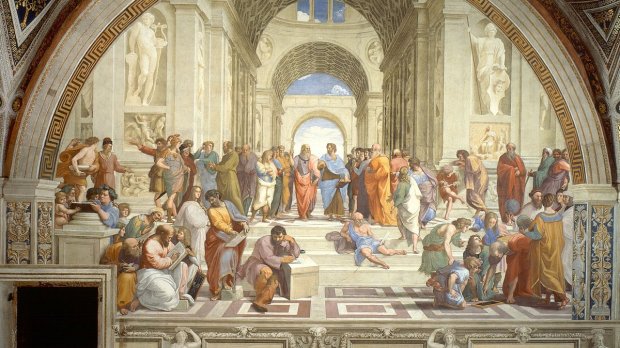When I talk to people about my teaching, they occasionally ask: “But, what can philosophy be used for?” The interlocutor typically explains to me that, at this point, that way of thinking is no longer useful. In reality, scientific knowledge—which combines the experience of physical phenomena with the exactitude of mathematical calculation—is the actual knowledge that is universally acknowledged as such after the numerous discoveries that have occurred from Galileo to the current day. To these are added, although with a certain margin of uncertainty, the achievements of the human sciences: psychology, sociology, linguistics, aesthetic or literary criticism, history, and many others. Thus, both the external world and the human condition gradually reveal their secrets in a far more accurate and, most importantly, richer manner than the universal abstractions of philosophy.
To this objection, very common today, I usually answer that yes, in a certain sense, philosophy is useless. But, in another sense, it is useful for everything.
Knowledge and the useful
Certainly, many things are studied and practiced because “they are useful”: medicine is used to cure the sick; civil engineering is used to build buildings, bridges, and railways; and mathematics serves medicine, civil engineering, and many other disciplines.
However, let us step back and ask why knowledge should always “be of some use”? If this were the case, knowledge would be only a useful function for some purpose, and this purpose would not be knowledge itself. Useful for what then? To maintain our biological life? Or to offer us some pleasure? The survival of the body, then the satisfaction it can provide us: this is, in fact, the answer that many superficial minds would give to this question.
But this conception is terribly reductionist because it lowers humanity to being only a species of animal, possibly superior to others in certain fields. In reality, a search for meaning transcends the bounds of what is useful and pleasurable, and is innate in the human soul. This is attested to by the history of individual sciences, which never stop only at practical results, but always tend to build broader theories more capable of encompassing the complexity of reality just to get to know it better.
Knowing for the sake of knowing
Now, this push finds in the exact sciences and in the human sciences a specific and increasingly limited object. At the same time, it aims to know everything that is knowable and therefore constitutes a certain totality. Now, three great spheres in front of us and within us go beyond specialized knowledge precisely because they encompass everything: nature, the human person, and, above all, being. Let us explain it.
- We find ourselves in a world of corporeal realities, whose laws the sciences legitimately seek to discover; but, before being regulated by parameters that condition their existence and dynamism, things have an identity that language tries to express with a definition that is as pertinent as possible. Is there something common, to some extent, among all corporeal realities, be it a drop of water, a linden tree, a cat? This is the field of investigation of the philosophy of nature.
- When we turn from the outside world to ourselves, questions about humanity arise: first of all, what is a person? How are his multiple dimensions articulated with each other and with humanity itself: rationality, speech, artistic and technical creativity, propensity for social and political life, openness to the sacred, among others? Furthermore, being self-conscious as a knowing and free being, the anthropological question expands into an ethical question — what should I do? — and in a gnoseological question — what can I know and how do I know it?
- In addition to nature and humanity, there is the most universal and radical instance: although everything is something and not something else (a linden is a linden, it is not a banana) everything is: the linden is, the banana is, even the cat is. What then is the entity, not as this or that entity, but precisely as it is? And is there a transcendent cause of the being of things, which religions call God? These two questions respectively generate metaphysics and that theology which we call philosophical, to distinguish it from theology, which is based on Scripture.
Thus it seems that the question of meaning generates six areas of research: philosophy of nature, anthropology, philosophy of knowledge, ethics, metaphysics, and philosophical theology. They all fall within the realm of philosophy, and they are all … useless, first because none of them will make a computer work, and then because not even ethics will finally tell me what I have to do hic et nunc to do it well. Thus, the greatness of philosophy consists precisely in its gratuitousness: it is a knowledge that, being sought for itself, and for nothing else, is wisdom.
At the same time, however, the set of disciplines just outlined is, in another sense, useful for everything. Indeed, whoever has acquired a certain mastery of it will be able to assess the merits and limitations of the scientific knowledge we encounter in professional or daily life. And more profoundly, this person will be able to insert the fragments analyzed by this or that science into the whole from which they receive their full meaning. The intellectual personality of this student will be enriched by the ability to organize everything learned since childhood into a coherent organism, and will be able to learn more later. This organicity is, above all, systematic, because it aims to know the things on which the different parts of philosophy are based, but it is also historical because it studies its development from the Greeks to the present day.
Consult all the Courses of the Faculty of Philosophy at the Pontifical Athenaeum Regina Apostolorum.



